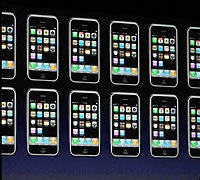 |
A second plaintiff has joined the lawsuit against Apple (NASDAQ: AAPL) regarding problems with its iPhone 3G, giving the company until Sept. 10 to respond to charges that it sold a defective device under false marketing promises.
Wilton Lee Triggs II is now the second complainant on the lawsuit initially filed Aug. 19 by Jessica Alena Smith, regarding the purchase of 3G iPhones from a Birmingham, Ala. Apple store this summer.
The suit, filed by the Birmingham-based Trimmier Law Firm, states the plaintiffs have suffered “significant monetary and non-monetary damages” due to the “defective” devices. According to the suit, their iPhones allegedly do not provide the data speeds and voice call connectivity promised in Apple advertising.
The lawsuit also aims for class-action status, claiming it’s also being filed on behalf of the “millions” potentially affected by defective iPhones.
The latest development comes two months after Apple’s second phone took the mobile device industry by storm, selling one million devices during the weekend of its launch.
It’s also the latest snag for the new device, which for weeks since launch has suffered persistent problems with its MobileMe online service, while a firmware update to existing models may have posed additional activation difficulties in the wake of the debut.
Last week, the company sought to quell some of the problems with a fix for 3G performance issues, and has been working to correct MobileMe’s problems — creating a blog to address complaints and provide updates on the service’s status.
In mid-July, the company gave MobileMe users 30 days free of service to make up for the rockiness. Last week, it added a further 60 days’ worth of access.
Apple has not yet made it clear how it plans to respond to the newest threat, however. The company, which has previously stated it does not comment on legal actions, did not return calls about the lawsuit by press time. Court documents indicate the company received the initial legal summons on Aug. 21.
The lawsuit states that the plaintiffs’ iPhones appeared to connect to the 3G network less than 25 percent of the time, and that Smith and Triggs experienced an “inordinate” amount of dropped calls as well as “slower than advertised” Internet connectivity, e-mail and text messaging services.
“Defendant [Apple] claims the device is twice as fast as its predecessor,” and made “numerous express warranties about he quality and compatibility of the 3G protocol” included in the phone,” the lawsuit said.
Calls to Smith and Triggs’ attorneys, Haydn Trechsel and Edward Reisinger, were directed to Trimmier attorney Jonathan Kudulis, who did not return repeated requests for comment by press time.
The Apple store manager in Birmingham, where the devices were bought, declined comment and referred media calls to Apple’s corporate media department.
It’s also unclear whether the suit could mar what’s been stellar performance for Apple and much of the wireless phone industry, which has continued to grow despite the year’s slowing economy.
A new Gartner report released today stated that worldwide sales of mobile phones hit near 305 million units in the second quarter of 2008, a 11.8 percent increase over the second quarter of 2007.
Apple, whose sales were not broken out by Gartner, has previously stated it aims to sell 10 million iPhones worldwide this year. In mid-June, Morgan Stanley (NYSE: MS) stated it expects the company’s iPhone unit sales to double in 2009, given the reduced price of the 3G device, which Apple is selling for half the retail price of the year-old original model.
There’s already speculation that the alleged 3G connectivity problems facing Apple and its U.S. carrier, AT&T, have prompted changes elsewhere in the industry. According to Citi Investment Research, BlackBerry maker Research in Motion (NASDAQ: RIMM) may delay the debut of its latest offering, the Bold, to address connectivity issues similar to those reported for the iPhone 3G.
According to an analyst at the research firm, the Bold experienced 3G connectivity problems, which he predicted wound encourage Research in Motion to hold off on the rollout until it could ensure the problem is fixed.


